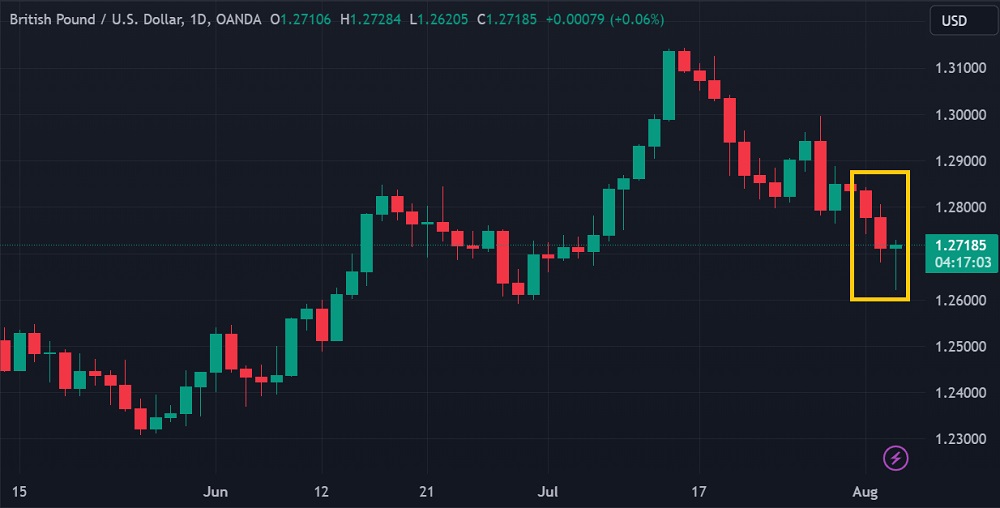The US dollar was hit as the decline in the ISM PMI report was seen as a negative sign ahead of the Nonfarm Payroll (NFP) data release on Friday.
The US Dollar Index (DXY) briefly touched 102.84 in Thursday's (August 3rd) trading, marking its highest level since July 7th. However, the Dixie retreated to the 102.40s after disappointing US non-manufacturing activity data was released. The US dollar weakened against all major currency pairs except GBP/USD, which grapples with dovish signals from the Bank of England.

ISM reported that the Purchasing Managers' Index (PMI) for the US non-manufacturing sector declined from 53.9 to 52.7 in July 2023, while the previous consensus had only predicted a downturn to 53.0. All sub-indices in this report also missed expectations, except for the price sub-index, which accelerated further.
Another PMI report from S&P Global reflects a similar situation, showing a decline but still above the 50.0 threshold. Meanwhile, other data indicates that the number of US unemployment claims increased in line with expectations.
The overall data series did not significantly impact the US economic outlook or the greenback. However, the decline in the employment sub-index in the ISM PMI report raised concerns among market participants ahead of Friday's Nonfarm Payroll (NFP) release.
This dampened expectations for the NFP, which affected the US dollar. EUR/USD edged slightly higher towards the 1.0955 range, AUD/USD rose by about 0.3% to 0.6560, while USD/JPY fell approximately 0.7% to a daily low of 142.06.
The GBP/USD also climbed after the release of US data but remains vulnerable to further bearish pressure. This is due to the Bank of England's (BoE) decision earlier in the afternoon to raise interest rates by only 25 instead of 50 basis points. GBP/USD was trading around the 1.2720 level at the time of writing during the New York session after having previously declined to 1.2620 during the London session.
"The relative disparity in the trajectory of future monetary policy, against a backdrop of better-than-expected economic growth data, has catalyzed a rally in the UK pound this year," said John Leiper, Chief Investment Officer in Titan Asset Management.
"But, momentum has dwindled recently, following the latest inflation number, which came in below expectation for the first time in four months, and signs today that the bank is becoming a little more relaxed around the direction of travel," he adds.

 Dedicated FREE FOREX VPS
Dedicated FREE FOREX VPS Free FOREX Virtual Private Server
Free FOREX Virtual Private Server MT4 Demo Contest, Get $500
MT4 Demo Contest, Get $500 Sign Up for an Account, Claim 60% Deposit Bonus
Sign Up for an Account, Claim 60% Deposit Bonus Free MT4/MT5 VPS 2024
Free MT4/MT5 VPS 2024 Send E-mail and Get Free Merchandise
Send E-mail and Get Free Merchandise $1K Refer a Friend Bonus for Pepperstone Pro clients
$1K Refer a Friend Bonus for Pepperstone Pro clients Maximize Your Earnings with 100% Deposit bonus
Maximize Your Earnings with 100% Deposit bonus Trade to Win, $5,000 Monthly Demo Contest
Trade to Win, $5,000 Monthly Demo Contest Claim 30% + 15% Deposit Bonus from LiteFinance
Claim 30% + 15% Deposit Bonus from LiteFinance






